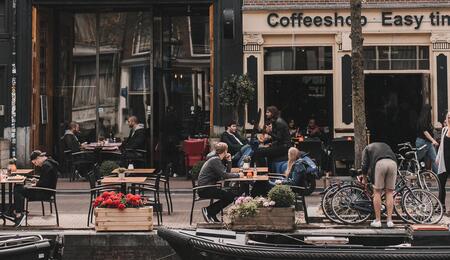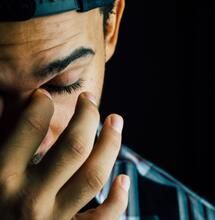Keeping Tourists Out! Amsterdam Coffeeshops to Close for Foreigners

It’s bad news for cannabis tourists to Amsterdam. Foreigners to the channel city threatened to face a ban on entering the city’s famed coffee shops in the future.
Fueled by cheap flights and travelling on a budget, millions of people flock to Amsterdam each year. So much that it’s difficult to hear any Dutch speaking as you move on the streets. As recent government research has shown, roughly 60% of those visitors come, as you might guess, to get high. According to the Guardian, another study has shown the city would support fewer than 70 of its 166 coffee shops if only locals were served. The proposal, which affects non-Dutch residents, is part of more expansive plans to tackle organized crime networks, and with hopes to make Amsterdam less attractive as “a place of soft drugs tourism,” the city’s mayor Femke Halsema said. Police and prosecutors have supported the move. According to mayor Halsema’s proposal, only Dutch residents, including foreigners who have a Dutch residence permit, will be able to enter the city’s coffee shops. If the measure pass, it will likely take into effect by 2022. “Amsterdam is an international city and we wish to attract tourists - but for its richness, its beauty and its cultural institutions,” Halsema said in a statement for the Dutch public broadcaster NOS. The mayor highlighted that the cannabis market is too big and holds too many organized crime links. She said the city could remain “open, hospitable and tolerant,” but at the same time would make life more difficult for criminals and cut down on mass, low-budget tourism. It would take a couple of months before the measure becomes effective. The period would be used to consult with coffee shop owners and facilitate the transition. The city also wants to introduce a hallmarked scheme for approved vendors, the mayor said.
A view of a neon sign of a cannabis coffee shop in Amsterdam, The Netherlands. Photo credit: Massimo Catarinella - Own work, CC BY-SA 3.0
In 2012, similar bans were legally introduced in other Dutch cities, such as Maastricht, which is close to the border. The ban on tourists followed after too many visitors began crossing the border from Belgium, Germany, and France coming to the city for weed. Maastricht city authorities also complained about increased drug dealers' presence on the streets and a lack of parking spaces for residents. Fearing an unruly street market, Amsterdam, where a third of the country’s coffee shops are situated, did not impose any ban on foreigners at the time. However, since then, the city has taken other soft measures such as limiting coffee shops near schools and banning smoking in some city areas. Cannabis is technically illegal under Dutch law, but a 1976 “tolerance policy” has allowed carrying small possessions. The same 1970s laws have allowed commercial establishments to be able to sell cannabis legally, which has led to the proliferation of coffee shops where cannabis, hash, and other infused products are sold. In contradiction, the production of cannabis remains illegal in the Netherlands while it’s legal to buy it from a coffee shop.
A coffeeshop downstairs in Maastricht, Photo credit: Gaúcho - Own work, CC BY-SA 3.0
Following the latest announcement on a pending ban on foreigners to Amsterdam coffee shops, the public's reactions have been mixed. Many local businesses have expressed support for the measure, but according to Joachim Helms of the coffee shop owners’ association BCD, any such plans risked transferring the soft drugs trade on the streets. “Cannabis is a popular product that people enjoy worldwide,” he told the Dutch ANP news agency. “People want to smoke their joint. If that can’t happen in a coffee shop, then they will buy it on the street.” Amsterdam has long been seen as the epicentre of cannabis culture. It has dominated lists of cities that welcome pot aficionados. For decades, the city has also hosted the iconic Cannabis Cup. Its cannabis culture has also been featured in cult so-called “stoner movies” of the 1980s. Should the measure to ban foreigners from entering coffee shops move forward, a sharp decline in tourists numbers to the Dutch capital is to be anticipated.



